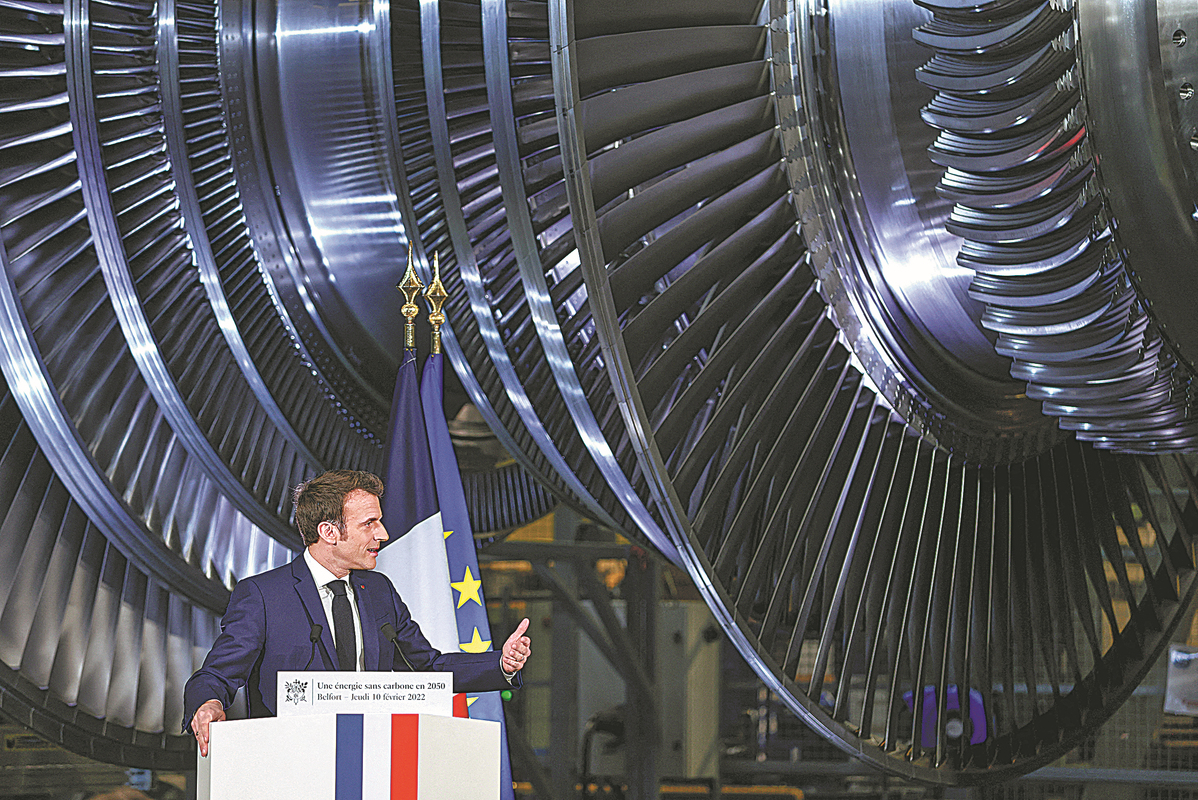Macron's nuclear ramp-up stirs debate in Europe


French President Emmanuel Macron's announcement on Thursday that France will build six more nuclear reactors in the wake of a European Union proposal to label nuclear energy as clean energy has intensified debate in the bloc about the energy source.
The French decision aims to ramp up the country's long-term energy production capacity and renovate its aging nuclear fleet at a time of soaring energy prices and concerns over energy dependence.
"The time of nuclear renaissance has come," Macron said in a speech laying out the country's energy policy for 2050. He said the government would commission six new generation reactors, with the first one expected to be on the grid in 2035 and the option to build eight more.
Macron's plan also includes wind and solar power, but is heavily weighted toward nuclear, which the European Commission included last month in its controversial green taxonomy, a classification system aimed to encourage investment in green transition.
The EU now depends on nuclear energy for a quarter of its electricity, half of which is produced in France.
Yan Qin, lead energy and carbon market analyst at Refinitiv based in Norway, said the EU's controversial move in green labeling nuclear energy shows that the EU realizes that the green transition pathway needs to be steady and realistic following the energy crunch.
She described Macron's announcement of "renaissance" as acknowledging that "ensuring energy supply security is important on the pathway to achieve climate targets".
"Nuclear power is the exemplar of stable and reliable energy to facilitate the scaling up of renewables and reduce EU's gas imports dependency," Qin said.
"Indeed, these changes in EU nuclear policy echoes the emphasis by China's leadership that ambitious low-carbon goals will not be realized easily and should not come at the expense of energy security."
The French and EU approach to nuclear energy has met strong opposition from Germany.
In 2011, then German chancellor Angela Merkel said that Germany would phase out nuclear power production after the accident caused by an earthquake and tsunami at the Fukushima nuclear plant in Japan.
Germany began the shutdown of three of its six nuclear power plants on Dec 31 as part of its phaseout plan.
German Chancellor Olaf Scholz is sticking to Merkel's plan despite a somewhat changing public opinion. A YouGov survey last month showed that around half of Germans were in favor of reversing the nuclear shutdown due to the recent sharp rise in energy prices.
Robert Habeck, German's vice-chancellor and minister for economic affairs and climate action, denounced France's focus on nuclear power as "outdated".
He said nuclear power would not turn into a competitive edge for France, and betting on renewables would benefit the German economy on the contrary.
In a joint statement last month, Habeck and Environment Minister Steffi Lemke rejected the EU's inclusion of nuclear energy in green taxonomy, calling it "risky and expensive".
In a letter to the EU, the German government pointed to the lack of any safety requirements regarding nuclear power plants and the hazard caused by radioactive waste.

































